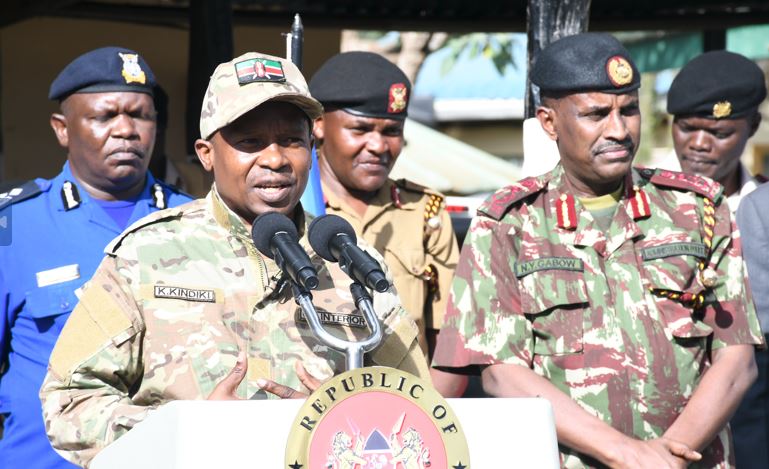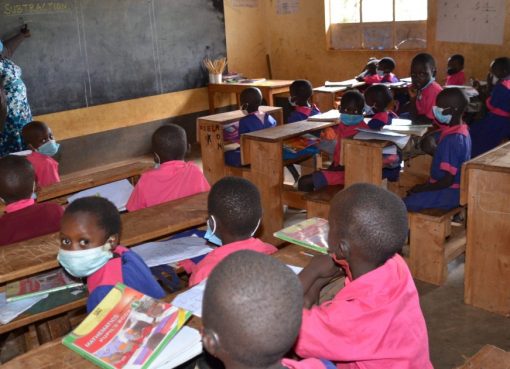The government has extended the curfew in parts of North Rift for 30 days in a bid to curb the ongoing cases of banditry in the region.
Interior Cabinet Secretary Professor Kithure Kindiki said that the ongoing operation to flush out bandits would be sustained until the menace is completely eradicated.
Speaking on Wednesday in Nanyuki town after assessing the progress of the operation in Laikipia County, the CS further revealed that the government would give all police reservists medical cover through the National Hospital Insurance Fund (NHIF) to ensure their well-being while tackling banditry.
“The NHIF cover will cushion the National Police Reservists (NPRs) should they incur injuries while in pursuit of criminals,” the CS said.
Professor Kindiki noted that there was remarkable progress in the operation to flush out bandits in Laikipia and cited last weekend’s recovery of 75 heads of cattle that were stolen from Enosoit ranch in the area.
“The multi-agency operation to recover the stolen cattle was successful and all the animals were handed back to the owner a day after they were stolen, we will sustain this until banditry is a thing of the past in this country,” he said.
Professor Kindiki declared a dusk-to-dawn curfew in parts of six counties in the Rift Valley in February among them Laikipia where Mukogodo was declared as a disturbed and dangerous area. Other Counties in the curfew list include West Pokot, Elgeyo Marakwet, Baringo, Samburu and Turkana.
The CS toured Naibor Anti-Stock Theft unit to commend the officers for the recovery of the animals and also paid a visit to Stephen Murijo a police reservist admitted at a Nanyuki hospital after sustaining injury during the operation. He announced that the government would foot his hospital bill.
The CS who was accompanied by top security officials among them Deputy Inspector General of Police in charge of Administration Police Noor Gabow and Laikipia County Commissioner Joseph Kanyiri among others also announced plans to upscale the police equipment modernization programme to include aerial surveillance and acquisition of armored vehicles.
He further said that the security personnel posted in camps in the banditry-affected areas would remain in the areas even after the menace was eradicated.
By Martin Munyi





